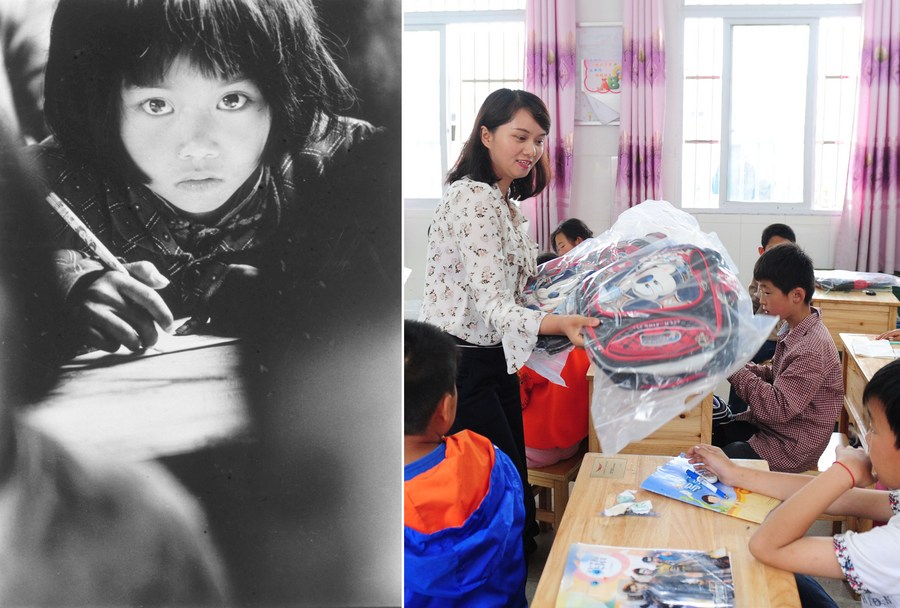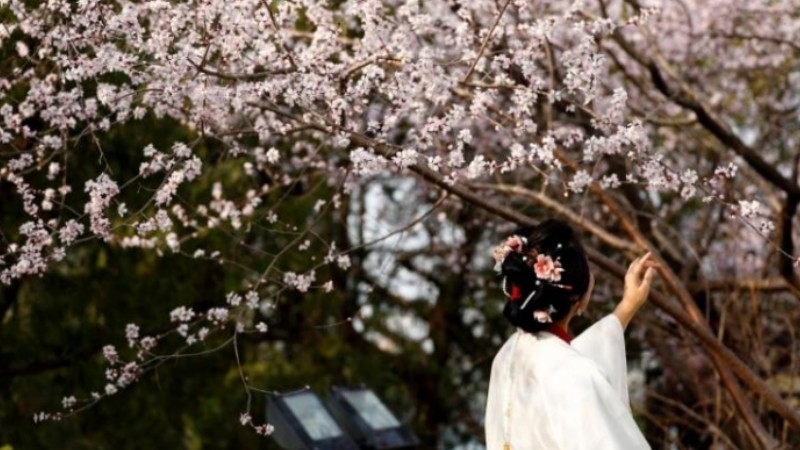Plot in Chinese game a fillip to charity from gamers

Photo taken on Sept. 17, 2021 shows a poster of the Chinese-made game Genshin Impact in a subway station in Shenzhen, south China's Guangdong Province. (Xinhua)
BEIJING, March 9 (Xinhua) -- Project Hope, a Chinese charity aiding children's education, expressed its gratitude on social media early this month to more than 90,000 gamers of the popular Chinese-made game Genshin Impact, as it received from them spontaneous donations worth about 2.4 million yuan (about 344,500 U.S. dollars) in just five days.
The almsdeed of the game community was inspired by a teaser promoting a new character called Dehya. In the plot, Dehya, a desert warrior, donated her savings to the desert orphans and named the fund, "The Wall of Hope."
Every bill of donation to Project Hope was worth 6.8 yuan, 30 yuan, or 648 yuan, which corresponds to the price of the virtual commodities of the game.
When it comes to philanthropy or donations, Project Hope will come to the minds of many Chinese people, whose memory about the charity is bonded with its classic poster and also symbol -- an innocent photo of a girl named Su Mingjuan, who benefitted from the project and had access to higher education out of her impoverished hometown.

Combo photo shows Su Mingjuan at class in this promotional photo of Hope Project (L, file photo by Xie Hailong) and Su giving gifts to students in Jinzhai Sanhe experimental school, her alma mater in Jinzhai, east China's Anhui Province, May 29, 2019 (R, photo by Wong Congqi). (Xinhua)
The similarity in names between "Project Hope" and "The Wall of Hope" explains a reason why the gamers chose the charity.
Project Hope said on its WeChat official account, "We are dazzled by the three numbers -- 648, and they are full of our dreams..."
"We will give the donators feedback on the funding situation as soon as possible," the charity said.
The influence of Project Hope's online article of thanks has lasted till now, as more people, no matter if they are Genshin Impact players, are making donations for a good cause.
A Weibo user named "Shishanxia" donated 64.8 yuan to Project Hope on March 2. "I'm pleased and proud to join the donators. We are all Dehyas," she said.
On Genshin Impact's official YouTube channel, the game character teaser has received 1.38 million views so far. "This is amazing! I'm so happy for the kids," a netizen wrote after hearing of Chinese players' charitable act.
"You have shown us vigor, love, and dedication, and I will go forward with your love and inherit hope. We believe that the power of love will make you shine more," Project Hope wrote to the gamers.
The spontaneous donation campaign was unexpected for the designers of the plot, but the game's Shanghai-based developer miHoYo had eyed educational aid programs for years.
In 2021, the company and the China Youth Development Foundation, which launched Project Hope in 1989, jointly launched a project to assist in the education of teenagers. The first phase of the project was implemented in Tongzi Primary School, a rural school in Yanjin County of the southwestern border province Yunnan, whereby school facilities were upgraded, students got new uniforms, and teachers were able to have regular training.
China's game industry is under vigorous growth. The sales revenue of the sector totaled 265.8 billion yuan in 2022, and there were 664 million gamers in China, according to the 2022 China Gaming Industry Report released in February.
The rapid development of the sector makes people feel the great impact of such a cultural industry, and the game character Dehya's power as a role model is an example.
Moreover, in recent years, the technological achievements of China's game industry have been applied deeply in sectors such as medical treatment and sports, and contributed to scientific and technological innovation.
"China's game industry is a strong cultural industry in the country. Game developers are more aware of their social responsibilities to produce games with high quality and positive influence upon the younger generations," said Chen Shaofeng, a professor studying cultural industries at Peking University.
Photos
Related Stories
- Charity sale promotes unity, rural growth
- International Charity Cadet Ball held in Moscow
- 'Balloon mom' Peng Xia: Tiny woman with big heart of benevolence
- Chinese charity donates educational materials to flood-affected state in South Sudan
- "Love Knows No Borders": International charity sale held in Beijing
Copyright © 2023 People's Daily Online. All Rights Reserved.









